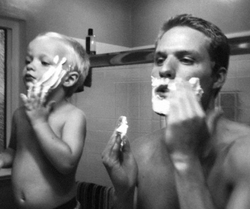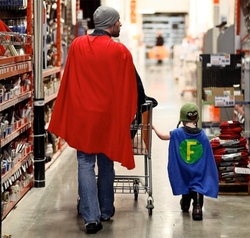
So, I am puzzled when I encounter children and adults who do not prefer to work or even despise engaging in chores on a regular basis. It seems my anecdotal evidence has been studied and confirmed.
Jean Twenge, professor of psychology at San Diego State University, wrote “Generation Me: Why Today’s Young Americans are More Confident, Assertive, Entitled — and More Miserable than Ever Before” and “The Narcissism Epidemic: Living in the Age of Entitlement.” Her research showed that today’s teenagers are more materialistic and less interested in working hard than baby boomers were in their teens.
God set in motion the idea of work with creation, before the Fall. In Genesis 2:15 He says, “The Lord God took the man and put him in the Garden of Eden to work it and take care of it.” It wasn’t until after Adam and Eve sinned that work became toil. It is noteworthy to see that work was a “very good” part of creation. (Genesis 1:31)
How do we help our children to see that work is a very good thing?
1) Be a role model. Sure, we all need rest, but how much time do we spend being unproductive? Do our children see us spending hours on Facebook or watching TV? Make certain they see a healthy balance of work and play.
2) Institute a chore system in your home. Chores are for everyone in the house, not just parents. They become more complex and numerous as children age and mature. In my counseling room, I tell children, “The older you get, the more chores you have. But the older you get, you also get more privileges.” A three-year-old might pick up toys. A six-year-old can dust, help to sort laundry, and feed the dog. A nine-year-old is able to make the bed, vacuum, and wash dishes. A teen may detail the car, unload the dish washer, do his/her own laundry, take the trash out, and cook one meal a week.
3) Be consistent about chores. So many families tell me, “We’ve done a chore chart but we haven’t followed through on making sure the jobs are done.” Big mistake! If children know you will not monitor their work, the chore chart will quickly become just another piece of paper on a crowded refrigerator.
4) Give rewards after completed chores. It can work to tie allowances to chore completion. Any trip to the store with children most often results in this question, “Can I have____?” My answer is always, “Did you bring your chore allowance?” If not, parents, close your wallet. Let children learn the value of a dollar.
5) Teach that completed chores are a meal ticket. Certainly, you cannot withhold proper nutrition from your children, but they (and you) can make choices. If they choose to not do a chore, then they choose to lose their chore allowance. As they get older and understand the consequences of their choices, then they are ready to learn that completed chores are a ticket to preferences for their next meal. Some of you may wince at this suggestion but no work done, no special choices (eating out rather than at home or having a special food) for the next meal or snacks and candy until the next time the family eats. This is how the real world operates. No free lunches. You can spend hours nagging your child to do chores or teach that you get what you work for.
6) Express that the family is a team. Lots of moms and/or dads work full time. They are exhausted at the end of a day. Have a family meeting to discuss that it takes a team to effectively run a household. Emphasize that everyone is expected to work together. This includes chores but also the everyday things such as bringing your plates to the sink after a meal, depositing snack wrappers in the trash, keeping your room tidy, and hanging up your coat. Team work is a critical skill for life. Teach it first at home.
May the Lord shine His face upon your family as you train up your children in the ways of the Lord, which includes teaching children the value of hard work.
This post was written by Cathy Milans. You can find her article here: http://soulcarecollective.seedbed.com/2015/08/12/teaching-children-value-honest-work/









 RSS Feed
RSS Feed